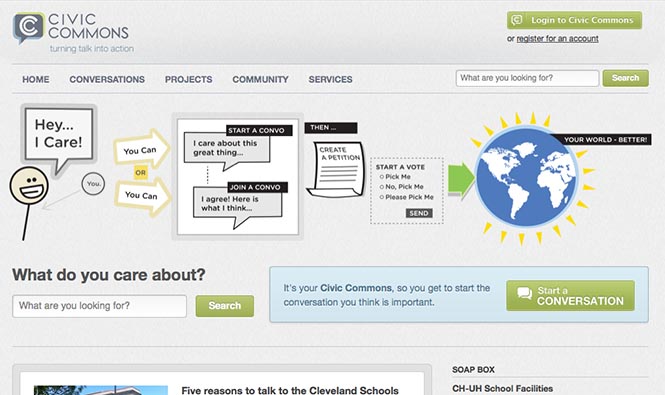Civic Commons engages students, faculty in academic planning
Members of the Academic Affairs Strategic Planning Committee are using suggestions and comments made by the community to help create the strategic plan for the next five years.
The Civic Commons, an online discussion website, was the location of most of the discussions. Two thousand community members read or discussed on the website and created 2,570 suggestions, said Eric Mansfield, executive director of University Media Relations.
“Traditionally, you send out a survey or you put out a suggestion box or you just ask people for feedback and you really only get so much information,” Mansfield said. “[Civic Commons] was a way to kind of create these digital communities and talk about the specific aspects of the academic affairs and the university so we can really have some great feedback.”
The website contained conversations on student success, academic excellence, research and creative endeavors, global engagement, finances and life skill development for students. The project offered 13 round tables for community members who preferred live discussion. The site required identification to participate in the conversations but had a form for anonymous suggestions
The committee will most likely post the first draft of the strategic plan on Civic Commons in early March, said Stanley Wearden, dean of the College of Communication and Information and co-chair of the Academic Affairs Strategic Planning Committee. After receiving feedback, the committee will create another draft to send to the Provost. The program is the first of its kind for universities.
The online format allowed participation from community members who might miss meetings due to their schedules or location on a different campus, said Carey McDougall, associate professor of art at the Stark campus and co-chair of the Academic Affairs Strategic Planning Committee.
“It’s difficult to have conversations with people who aren’t physically near you, and so one of the things Civic Commons has done is it’s branched the distance gap and also branched the time gap,” said McDougal. “We miss out on a lot of opportunities to talk to our colleagues at different campuses, both the main and the other regional ones, so this really bridged that gap for those who wanted to partake in the conversations.”
Civic Commons has policies in place to maintain civil conversations, something that can be hard to maintain online, Wearden said. All participants upheld these policies during the conversations with no problems.
“People didn’t have to worry about being shouted down,” Wearden said. “They didn’t have to worry about being insulted. They could just express themselves and other people could respond. They could agree or disagree but they had to do it in a civil way.”
The Civic Commons is a non-profit organization in Cleveland which focuses on using social media to have civil discussions on civic topics, Wearden said. Kent State helped the Commons secure grant money in the past and in exchange, put Wearden on the Board of Directors.
“Because they do make this tool available to other organizations, the more I thought about it, the more I thought this is really a tool we ought to be using,” Wearden said. “I talked with the provost about it and he took a look at what they do and he thought it would be a good idea as well.”
Contact Lyndsey Schley at [email protected].



